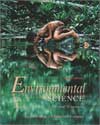 |
1 |  | 
The great diversity of organisms essentially serves as an "ecological service bureau" of immense practical importance. List six specific services rendered by this corps of creatures. |
|  | |
 |
 |
2 |  | 
The Endangered Species Act employs a two-step process to protect species. Describe these steps. |
|  | |
 |
 |
3 |  | 
A species newly introduced into an ecosystem often grows rapidly in numbers and displaces native species. Explain why such a species can be so disruptive in a new system, yet not get out of hand in its native system. |
|  | |
 |
 |
4 |  | 
Many different kinds of human activities are working to reduce biodiversity around the world. Identify the three with the greatest impact, and describe why you feel these are more significant than the rest. |
|  | |
 |
 |
5 |  | 
A few years ago, the California condor population dropped to a handful of birds, all in captivity. A zoo breeding program has increased condor numbers such that birds are now being released back into the wild. Despite these encouraging successes with breeding, one could argue that the species still is on the brink of extinction. Explain why. |
|  | |
 |
 |
6 |  | 
Aldo Leopold once said: "The first rule of intelligent tinkering is to save the pieces."
a. Why is this a good idea when we tinker with machines or other mechanical objects?
b. What does the statement mean when applied to preservation of biodiversity? |
|  | |
 |
 |
7 |  | 
The Endangered Species Act (ESA) has both strong supporters and vigorous opponents. One source of the disagreement is that the two sides have different conceptual frameworks. (Recall that a conceptual framework is a set of basic beliefs that determines one's actions.) A step in critical thinking is to recognize and understand conceptual frameworks. Outline the apparent conceptual framework of the supporters of the ESA and its opponents. |
|  | |
 |
 |
8 |  | 
The conflict over whether or not to allow oil exploration in the arctic coastal plain of Alaska's Arctic National Wildlife Refuge is a classic case study in the conflict over protecting biodiversity. Proponents claim that any oil found would reduce our dependence on foreign oil, help with our international balance-of-payments deficit, and produce economic benefits generally. Environmentalists counter that the coastal plain is a habitat bonanza for wildlife, from waterfowl to caribou. To jeopardize those species for an oil source that would supply U.S. needs for 200 days at best would be pure folly.
a. Make the general case for biodiversity protection in support of leaving the coastal plain alone.
b. Counter each point presented in (a) with the strongest point you can. Be as complete and comprehensive as possible. |
|  | |
 |
 |
9 |  | 
How would you respond to a person from the West African country of Ivory Coast who said, "So you developed nations want us to protect our vast diversity of plants and animals. Why should we do that? I know why you are interested in our species. You think you can get medicines from some and use some as sources of important genes that your biotechnologists can transfer into other plants to increase their value to you. You have the technology to capitalize on these species. We do not. It is in your economic interest, not ours, to have our diversity protected. Propose a plan so that we have a reason to protect our species." |
|  | |
 |
 |
10 |  | 
While hunters are sometimes criticized for their activity, other people feel that hunters and their organizations have actually made significant contributions to the protection of biodiversity. Outline a possible basis for this claim. |
|  | |
 |
 |
11 |  | 
We normally think of bulldozers and chainsaws as major threats to biodiversity, but what about your local pet store? How could such stores and their customers contribute to the loss of biodiversity? |
|  | |
 |
 |
12 |  | 
The text authors list aesthetic and cultural benefits as one value of wild nature. They suggest that for many people wild species have existence value even if we never have the chance to actually see them. How would you go about evaluating whether they are correct? Identify some specific kinds of information you would want to gather. |
|  | |
 |
 |
13 |  | 
Visit the Current Global Environmental Issues map on this Web site. Under Wildlife, choose the piece Canada takes steps to conserve B.C. salmon. The government decision imposes economic hardship on small coastal towns. How is this issue an example of a "darned if you do and darned if you don't" problem? |
|  | |
 |



 2003 McGraw-Hill Higher Education
2003 McGraw-Hill Higher Education